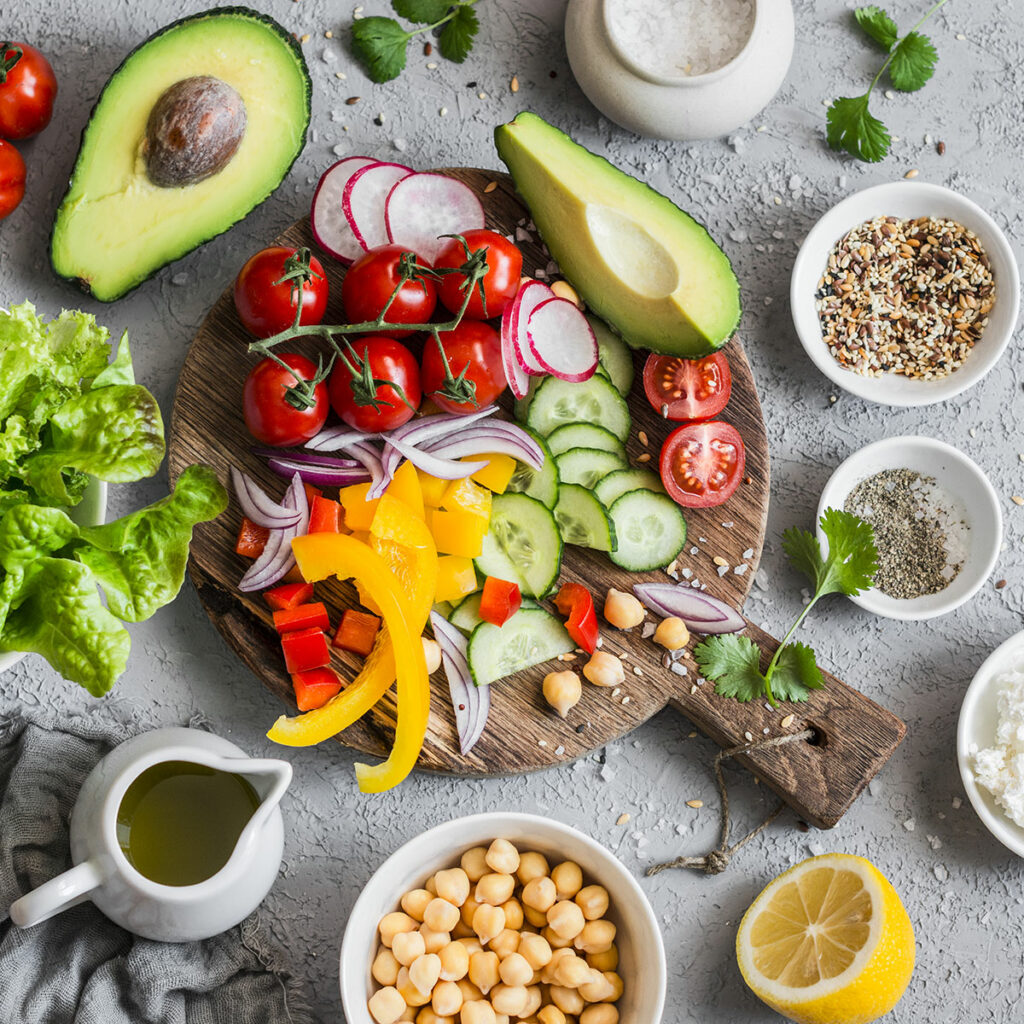Become a Senior Nutrition Specialist to Help Give Older Adults a Better Quality of Life
As seniors age, nutritional needs change. Making sure those needs are met makes a real difference in that adult’s health and happiness.
The physiologic changes that occur with aging make older adults susceptible to malnutrition and disease. In fact, nearly 2 out of every 3 seniors are at risk for malnutrition.
The AFPA Senior Nutrition Specialist online course will teach you step-by-step how to help older adults achieve a better quality of life through specially designed nutrition.
The course covers important topics such as physiological changes of aging, weight, and nutrition problems in older adults; diet and cultural diversity in older adults; macronutrient, mineral, and vitamin requirements for older adults; and much more.

What Can I Do as a Senior Nutrition Specialist?

As an AFPA Senior Nutrition Specialist, you’ll be able to:
- Work with older adults and senior clients on getting the highest quality nutritional care and offer a sound nutritional plan that helps to avoid disease and achieve weight maintenance goals
- Teach older adults (and those interested) about the nutritional connections to the diseases and disorders common in this population
- Identify nutritional recommendations for older adults based on the Dietary Guidelines for Americans and Healthy People 2020
- Describe to clients how dietary interventions can slow aging and the progression of disease
- Learn from examples of actual patients and nutritional disorders that are seen in the community and clinical settings
- Discuss the changes in energy needs that occur with advancing age and give clients recommendations for dietary intake and lifestyle
- Explain how age-related changes in metabolism and health affect requirements for carbohydrates, fats, proteins, and fluids
- Educate clients on the risk factors for various diseases, lead them through a guided assessment, and provide a nutritional plan to improve their quality of life
What Your Online Course Includes
- All course materials
- Course digital textbook
- Companion ebook
- Course activities
- Practice quizzes and self assessments
- Online final exam

A Look Inside The Curriculum
The Physiology of Aging Answer
Begin by identifying factors that contribute to changes in body composition with age and what key changes occur in each part of the body. Topics include:
- Changes in body composition
- Energy needs for the older adult & senior
- Cardiovascular, gastrointestinal, respiratory changes
- Nutrition and skeletal health, osteoporosis, arthritis, gout
- Immune system, nervous system, endocrine system changes
Assessing Nutritional Care Needs Answer
Apply what you’ve learned about older adult and senior anatomy and integrate it with the Dietary Guidelines for Americans and Healthy People 2020 to develop effective plans that meet all nutritional needs. Topics include:
- Macronutrient & fluid recommendations for older adult
- Nutrition recommendations – fats, proteins, carbohydrates
- Digestion and absorption changes
- Vitamin & mineral requirements, absorption, function, recommendations
Strategies for Health Promotion and Disease Prevention in Older Adults and Seniors Answer
Create sound nutritional performance plans (based off of tailored client needs) that will optimize health and work toward helping prevent disease or limit the symptoms of disease. Topics include:
- Physical activity and exercise guidelines for older adults and seniors
- Steps in nutritional assessment & screening, evaluation and analysis
- Physical disabilities, functional and mental status
- Nutritional implications of disease and conditions – gastrointestinal disorders, cardiovascular, respiratory
- Nutritional implications of disease and conditions – renal, metabolic, endocrine, thyroid, cognitive
- Nutritional implications of malnutrition and obesity
Physiologic Changes That Influence the Pharmacokinetic Effects of Medications Answer
Knowing what medications an older adult takes and whether they can affect appetite and digestion is important in prescribing effective nutritional counseling. Topics include:
- Medications and the effects on the older adult, food interactions
- Use of complementary and alternative medicines
- Ethics and nutrition support

“I absolutely LOVE this course! I am about a 1/4 of the way through the course, and the information is life changing! I cannot wait to implement the content into the lives of my patients/clients and see them heal from the inside out.”
— Adrianna M.
130000+ students certified
29+ years of excellence in education
30+ certification programs offered
98.9% student satisfaction
Let Customers Speak for Us
FAQ
Is This Program Right For Me? Answer
Enrolling in the Senior Nutrition Specialist course may be an excellent fit, if you…
- Are interested in working with older clients and seniors, either in group or one-on-one settings, encouraging them to prioritize intentional, healthy habits that will enhance their lives
- Are looking to change careers and align yourself on a professional path that is deeply satisfying and financially rewarding
- Already work as a fitness or healthcare professional and want to expand your services and increase your income
- Want to get the best education without constraints on your schedule, lifestyle, or bank account
Are There Payment Plans? Answer
Absolutely!
Pick the loan that fits your budget, and make payments over three, six, or 12 months. Our payment plans offer instant approval, are safe and secure.
Do I Qualify? Answer
To enroll in the Senior Nutrition Specialist course, you must:
- Be at least 18 years of age.
Have a solid understanding of the English language. - Hold a valid Nutrition & Wellness Consultant Certification or Holistic Nutritionist Certification. or similar certification is (strongly recommended)
Exam Requirements:
- You need a minimum final exam grade of 85% to pass.
A $75.00 retest fee will apply.





